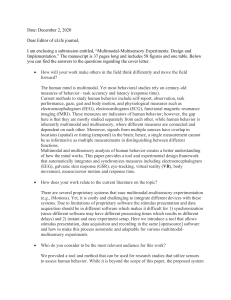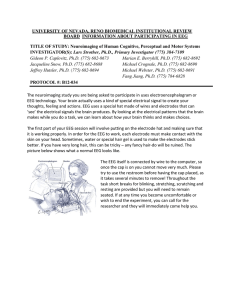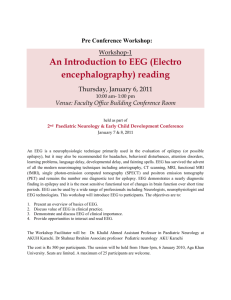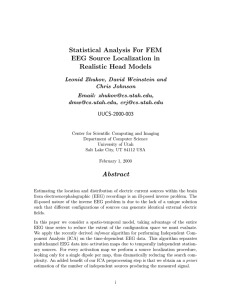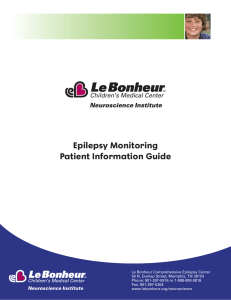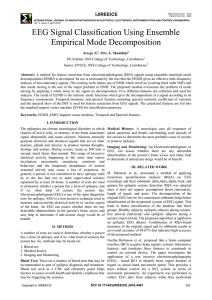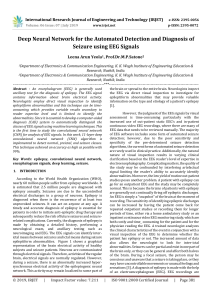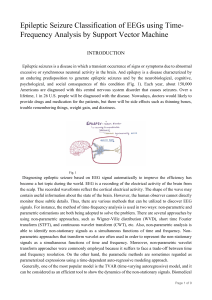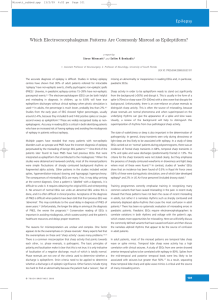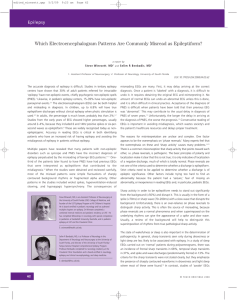MULTIMODAL MONITORING IN NEUROCRITICAL CARE Submitted By: Shreya Gautam sg3319
advertisement
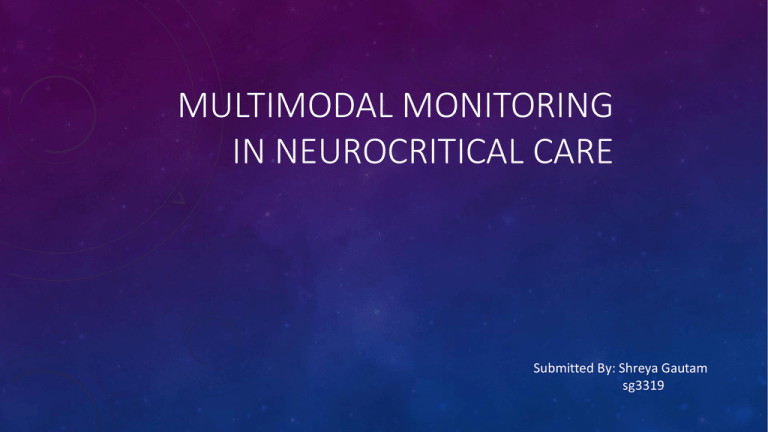
MULTIMODAL MONITORING IN NEUROCRITICAL CARE Submitted By: Shreya Gautam sg3319 MOTIVATION • Currently: Unimodal analysis of data • Problem: Several different machines False alarms Large time gap between consecutive monitoring tasks • Proposal: Multimodal continuous monitoring • Approach: Combine various datasets intelligently • Aim: To predict secondary brain insults, brain ischemia SIMULATION DATA 1) Continuous EEG signals: Taken from Bern-Barcelona EEG database. Patients suffering from temporal lobe epilepsy. Sampling frequency: 1024 Hz. Number of samples: 10240. Parameters utilized (displaying for 1 patient): Continuous EEG monitoring SIMULATION DATA 2) Cerebral Microdialysis data: 50 patients suffering from Traumatic Brain Injury (TBI). Sampling frequency: 0.1 Hz. Parameters utilized (displaying for 1 patient): KEY FACTORS • Sampling time of all data should be matched. • Care should be taken such that different data are evaluated at the same time duration. • Stationary and non-stationary datasets should be evaluated appropriately. • Easier to remain in the time domain for stationary and non-stationary datasets. • An inherent associated drawback would be that of time lag present among different machines or the variation in the time precision. No Is lactate level greater than 2umol/L ALGORITHM Yes No Is LPR > 40 and Glucose < 1.7 mmol/L and Glycerol > 126 umol/L Yes Combine this information with alpha/delta ratio of cEEG Is ratio > 50 % No Issue first warning Yes Issue second warning RESULTS Number of Warnings issued for each patient REFERENCES [1] Wartenberg, Katja Elfriede, J. Michael Schmidt, and Stephan A. Mayer. "Multimodality monitoring in neurocritical care." Critical care clinics 23.3 (2007): 507-538. [2] Thelin, Eric P., et al. "Microdialysis monitoring of CSF parameters in severe traumatic brain injury patients: a novel approach." Front. Neurol 5 (2014). [3] Naro, Daniel, et al. "Detecting determinism with improved sensitivity in time series: Rank-based nonlinear predictability score." Physical Review E 90.3 (2014): 032913. [4] R.G. Andrzejak, K. Schindler, and C. Rummel, "Nonrandomness, nonlinear dependence, and nonstationarity of electroencephalographic recordings from epilepsy patients," Phys. Rev. E, vol. 86, 046206, 2012. [5] Claassen, Jan, et al. "Quantitative continuous EEG for detecting delayed cerebral ischemia in patients with poor-grade subarachnoid hemorrhage."Clinical neurophysiology 115.12 (2004): 2699-2710.

